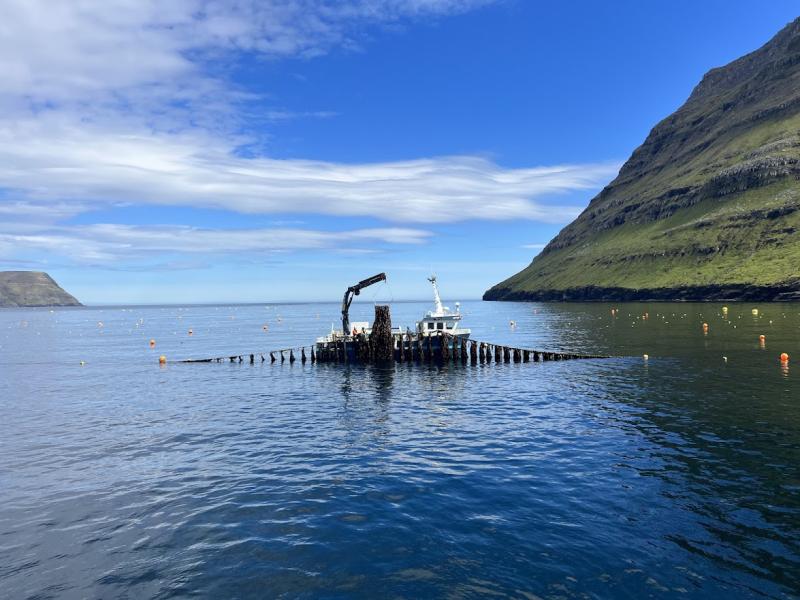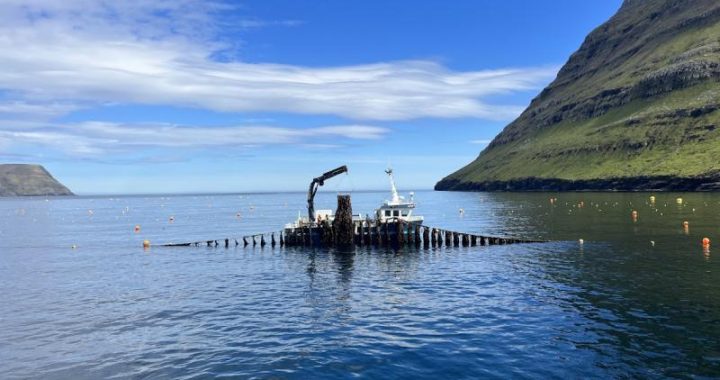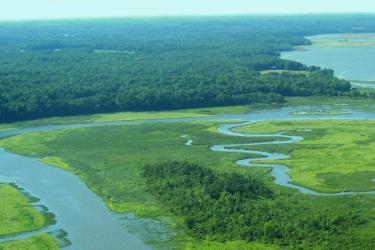July 12, 2024
NOAA provided scientific expertise on the guidelines, which will develop global aquaculture best practices.

More seafood is currently produced via farming, or aquaculture, than is harvested from the wild, according to a recent United Nations Food and Agriculture Organization report. As more people globally rely on seafood farming for safe, nutritious food, ensuring aquaculture grows sustainably is of the utmost importance.
The Guidelines for Sustainable Aquaculture endorsed by the Food and Agriculture Organization aim to do exactly that: develop global aquaculture best practices.
As an aquaculture science and policy leader, NOAA helped inform the new guidelines. NOAA experts worked to ensure the needs of North American aquaculture sectors were represented in the guidelines while balancing the needs of countries worldwide.
Aquaculture is the fastest-growing food production sector globally, driven by technological innovations and growing demand for seafood. As with all forms of agriculture, this rapid growth has exposed challenges for environmental, social, and economic sustainability. Guidelines are needed to ensure aquaculture grows sustainably.
This framework addresses these challenges by outlining a plan that benefits people, the ocean, and coastal economies. The authors envision an aquaculture sector that:
- Contributes to the fight against global hunger
- Lifts economies and the living standards of seafood farmers globally
- Bolster’s resilience to climate change
Read the new Guidelines for Sustainable Aquaculture on the United Nations Food and Agriculture Organisation Website, and learn more about NOAA’s work in sustainable aquaculture.





MEMEK MAMAK KAU BELATUNGAN KONTOL MAMPUS
Magnificent beat ! I would like to apprentice while you amend your website, how could i subscribe for a blog
website? The account aided me a acceptable deal.
I had been tiny bit acquainted of this your broadcast offered
bright clear concept
Asking questions are really nice thing if you are not understanding anything fully, but this paragraph gives good understanding yet.
Sekarang kamu bisa bermain slot online lebih praktis lewat Aplikasi GTA777 Mobile.
Aplikasi ini dirancang khusus agar kamu bisa spin di mana pun.
Aplikasi GTA777 kompatibel di semua perangkat.
Kamu bisa download langsung dari situs resmi.
Setelah login, kamu akan menikmati fitur gacor seperti
versi desktop.
Keunggulan Aplikasi Slot GTA777 antara lain hemat kuota.
Segera instal aplikasinya dan main lebih bebas tanpa batas
Saya sudah coba main di MPO102 dan hasilnya memuaskan.
Transaksi MPO102 gampang dan praktis.
Slotnya juga gacor.
Buat pemain baru, MPO102 sangat cocok.
GUA KONTOL GUA BANGGA
gua anak memek dan memek gua bau
Your way of describing the whole thing in this paragraph is genuinely good, every
one be able to effortlessly be aware of it, Thanks a lot.
JANGAN TOLOL TOLOL AMAT
FLkVBcZhXRKvI
SskTdGOlc